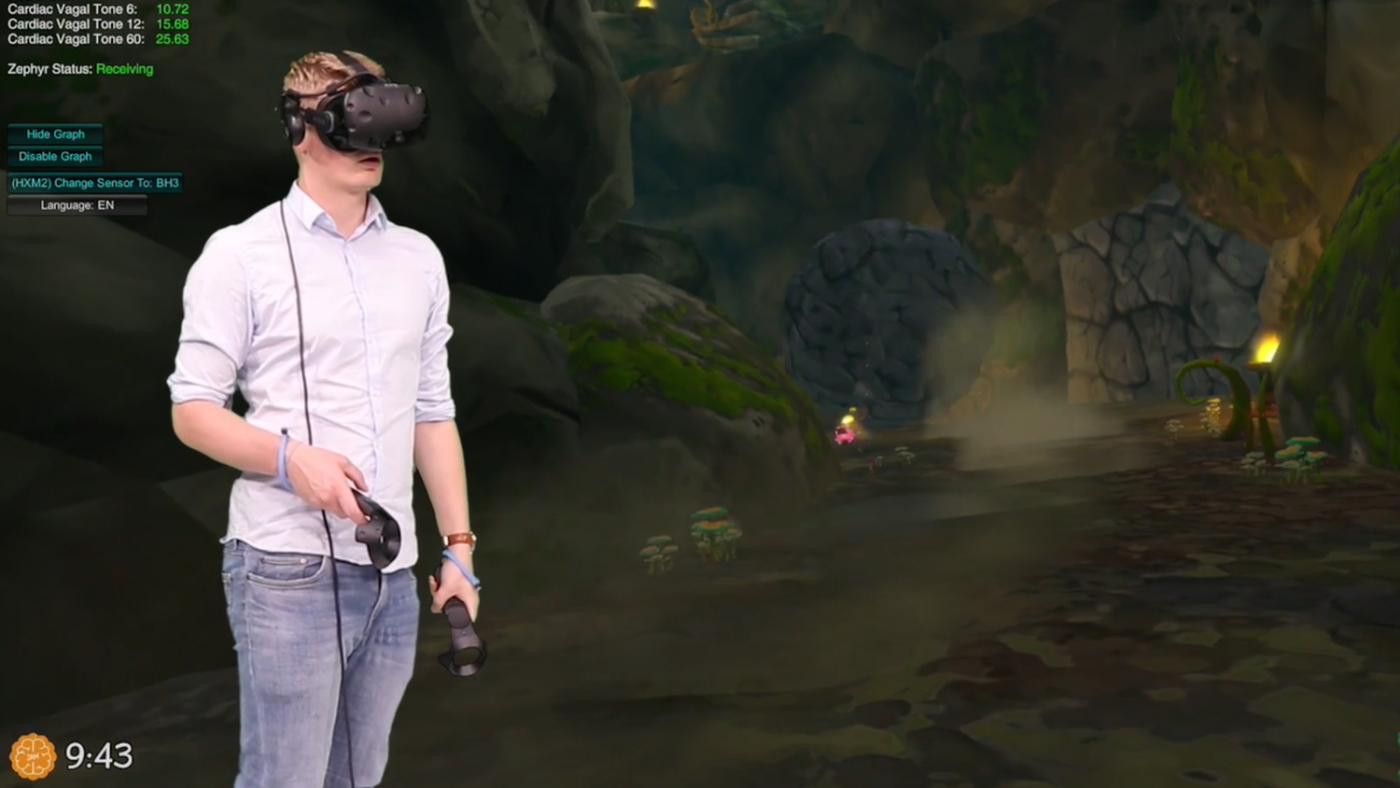Faculty of Medicine and UMC help students with a new training
Students destress with VR

While playing the game Kana VR, students get not only VR glasses but also a heart rate sensor that measures their stress levels. This information is then linked to in-game assignments. To complete them, students must manage their stress. When is stress required to complete the task and when is it undesired?
By training with VR, students learn how to influence their stress levels. For instance, they must climb a climbing plant, which requires them to stay focused. Another level asks participants to move a ball to a bowl so they can open a gate. This difficult and somewhat frustrating task requires players to stay calm and peaceful.
Gaining control
The training is open for every student of the Faculty who is “interested in learning how to cope with stress differently and curious about what VR can do for them,” says Madelon Gijzel, a trainer and student advisor at UMC Utrecht.
“You do not have to be good at gaming to train your stress levels", explains Gijzel. "There is also a coach who helps you gain control over the ‘on’ and ‘off’ buttons of your stress system.”
The coach is present throughout the training. Once it is done, this person assesses how students have deployed stress for the benefit of the missions. Furthermore, contestants learn that stress can also be useful, as long as they know how to regulate their stress systems.
Experiencing lifelike situations
According to the Faculty, VR is an effective tool for students looking to learn new skills. Virtual reality and biofeedback seem to suit medically oriented students. Gijzel: “VR enables us to experience lifelike situations and use them for training. In this way, students gain new insights and skills, which they can use in their daily lives.”
Moreover, Gijzel says that the training can improve study skills. Students often feel pressured to perform and afraid of failure, which can affect their mental and physical health negatively. Through this training, students learn to improve their mindset and destress.
Currently, VR is mostly used for workshops in mental health care. This isn't the first time UMC utilises VR for educational purposes. The university hospital has previously taught students to work in a sterile way, by using a VR app called "Sterile".
Pilot
The present workshop is part of the workshops and courses on guidance and development offered by the faculty in cooperation with Academycoaching. The first session was conducted with thirteen students in January. In addition to individual VR sessions, participants will learn more about stress through e-learning, webinars, and lessons about mental fitness over the next few weeks.
The video below shows what the VR game looks like.
